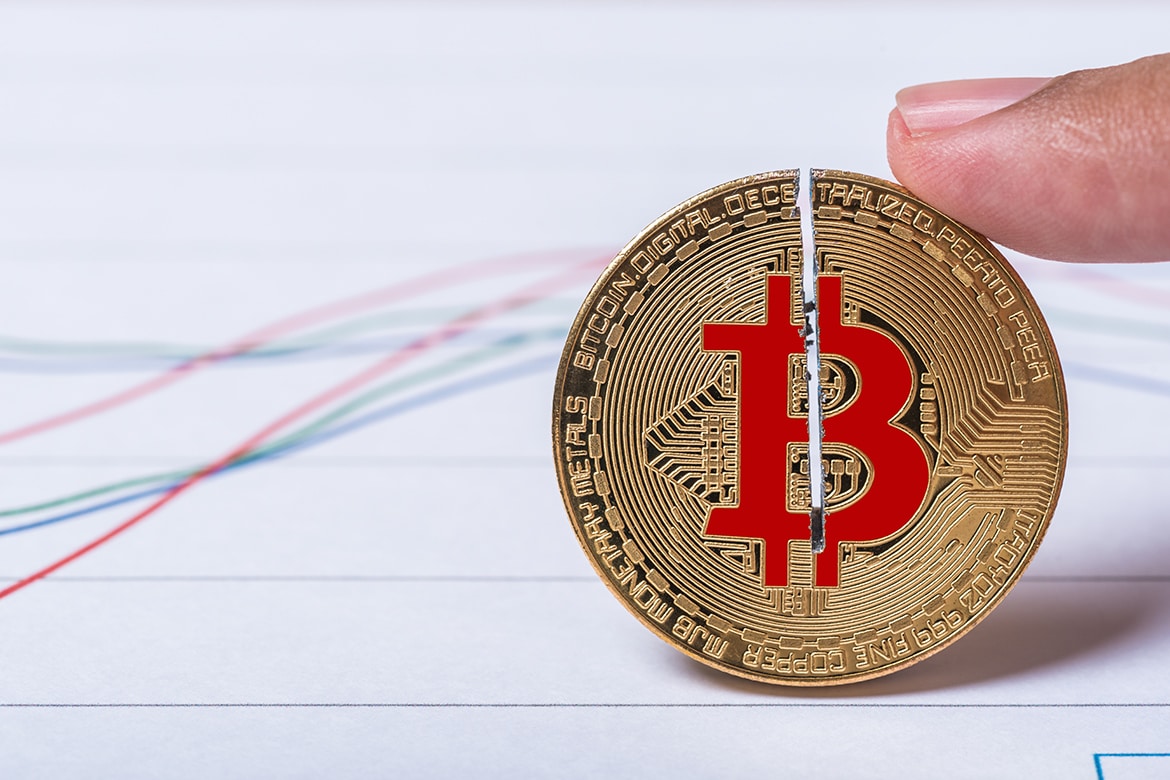
Jeff Fawkes is a seasoned investment professional and a crypto analyst. He has a dual degree in Business Administration and Creative Writing and is passionate when it comes to how technology impacts our society.
Bitcoin is believed to enter the miner capitulation stage, where hash rate and price drop significantly. However, some researchers claim that Bitcoin price is independent of the halving cycles, as well as of hash rate.

Per TradingView general manager Pierce Crosby, the programmatic price limits have significant influence over the Bitcoin hash rate. The lower the price per coin, the lower the profits from block mining. Crosby believes that part of the network’s rigs will slow down, causing a ‘death spiral’ in crypto mining. They will return to the network as soon as the price increases. This theory is popular among several other analysts. Bitcoin halving is approaching, but the hash rate is decreasing.
Walter Salama, chief compliance officer at Bitpatagonia, said to Cointelegraph that the decline in profits is a cause of the recent miner’s escape:
“All miners invest in long-term business and contribute to the blockchain. The medium to small miners, many are closing, we have all made the same mistakes, we have entered the industry with very high costs of the machines and with a Bitcoin that never stopped falling in value and when we had an attractive price to sell and recover, we did not have stock because we were always forced to badly sell to survive.”
Per blockchain consultant Donnell Wright, halving has nothing to do with the recent decline in hash rate. Miners too, as they just went to temporary shut down due to upgrading:
“It could be that miners are competing with newer technology, so they may have to shut off current miners to upgrade. It’s also likely that mining operations may be forced to temporarily shut down due to COVID-19, depending on the region. I don’t believe the decline is linked to the halving, which may incentivize bigger players to mine — after the fact.”
Sidharth Sogani, founder and CEO of Crebaco, claims that China lockdown makes mining more complicated business:
“China being under lockdown is one of the reasons why the hash rate has reduced because the mining facilities are not operating at its best capacities.”
Worth to note that every time Bitcoin network difficulty goes in disbalance with available hash power, the blocks are breaking a 10 minutes born period. For instance, several recent blocks took 15 to 40 minutes to mine. Among them, blocks that took 2-3 minutes to mine, which is even more strange.
Recently, Vitalik Buterin was tweeting in a similar manner. He claimed that 95% of the Stock-to-Flow Bitcoin Halving theories are fake. He also claimed that 95% of all the price predictions are vastly nonsense.
Coinshares analyst Christopher Benediksen claims that the fears that miners will face catastrophe are ridiculous. Per his report, the fears are “highly theoretical edge cases without any historical real-world precedent.”
His work “Why Bitcoin Miners Will Keep Mining” explains that several high-cost mining firms will have to leave the game now. Since the year beginning, miners have lost 50% of their profits. Bitcoin price lost 40% of its value, and the hash rate also lost 40%. The fewer people mine, the lower the network difficulty. Per Benediksen, the network’s hash rate is a key element of the whole Bitcoin system.
He does not believe in a scenario where the majority of firms will shut off after the halving, however. Christopher claims that people will mine till the halving, and after it. Miners don’t have many reasons to stop, because they still extract profits. They cal hold Bitcoin then, to wait for a price increase. After the Bitcoin halving on 13 May, the price may start a tight rise. Bitcoin gained a huge increase in 6 months after the halvings in 2016 and 2012. Bitcoin guru and published author Andreas Antonopoulos claims similar thought:
“Part of the reason that’s unlikely to happen is that miners have a much more long-term perspective.”
Benediksen further elaborates on the matter of slow mining hash rate decrease in the worst-case scenario. He claims that, even when miners are losing profits, the process of shutting down the rigs is slow:
“Powering down several hundred-megawatt mines is not a matter of pulling a socket plug — you would risk severely damaging the local grid. Moreover, many miners have offtake agreements that mandate that they continue their draw for as long as they can pay their contracted bills. The point is: even when bitcoin prices significantly fall (which happens pretty much every year) or the mining reward is halved (which happens at predetermined time intervals), the physical and operational realities of the mining network are such that drawdowns in hash rate take time”
Such a positive look at the mining industry is essential these days. As coronavirus attacks, people will put more time into things they can do remotely. Including crypto mining, which is a very attractive industry for tech-savvy individuals with money. Consider the unlimited monetary supply of Ethereum or Tail Emission in Monero and you’ll see: not only Bitcoin and Bitcoin Cash offer a hefty of benefits and opportunities.

Jeff Fawkes is a seasoned investment professional and a crypto analyst. He has a dual degree in Business Administration and Creative Writing and is passionate when it comes to how technology impacts our society.




